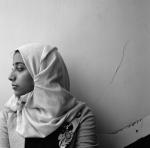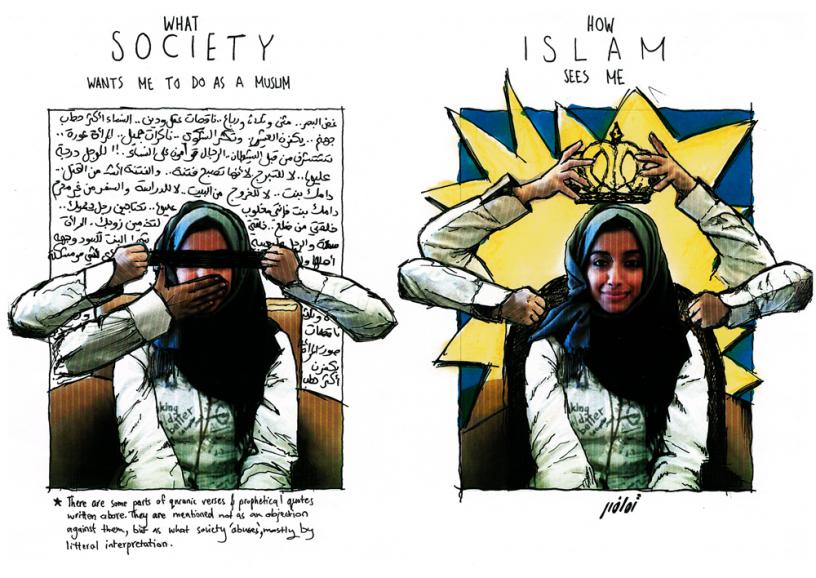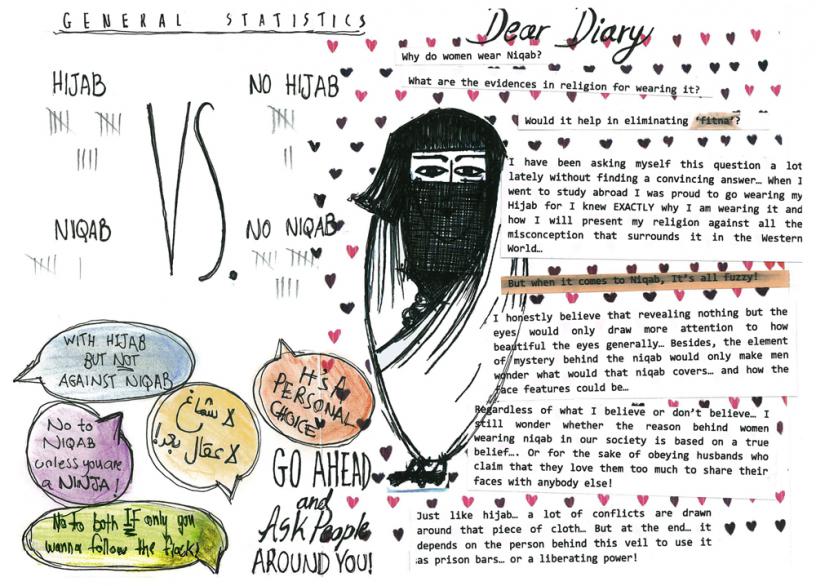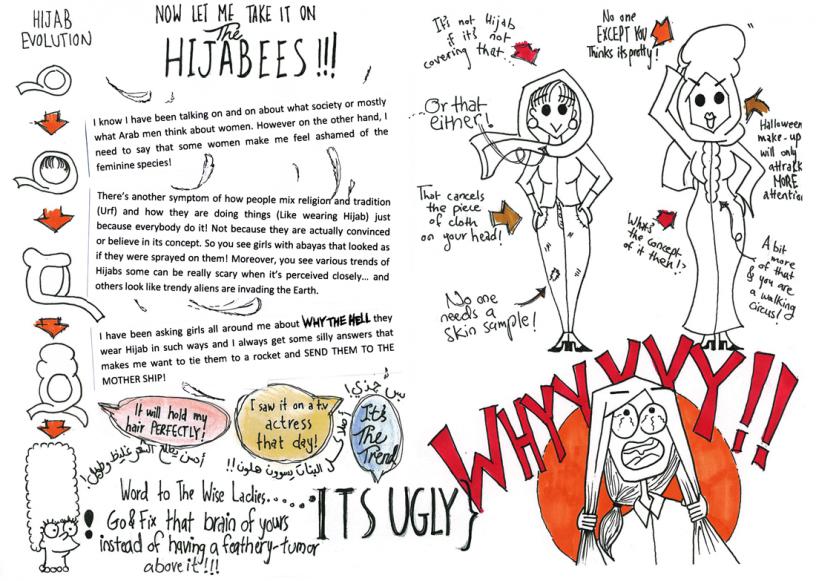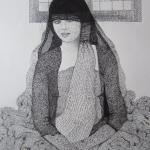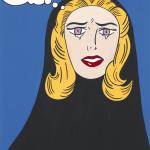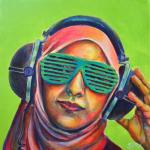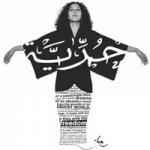Tamadher al Fahal a young artist in Bahrain, creates a tongue-in-cheek ‘zine' where she captures her frustrations at the injustices and inequality she sees against women in the Arab world. Explore an excerpt from her zine, “Diary of a Mad Arabian Woman,” below, and hear more about her quirky and creative responses and what she plans for the next installment.
The idea behind “Diary of a Mad Arabian Woman” was born from my everyday encounters with people in Bahrain. I have realized for quite some time that the society I am living in has been condemning women in lots of ways in the name of religion. Like many, I have been raised in a conservative environment where a successful woman can be defined simply as “the one who gets married first and fulfills her destiny by becoming a housewife!”
This portion of thoughts has been sitting in agony at the corner of my mind. It grew bigger with time—so big that it felt like I could easily write a book about it. Eventually I shared some of my distress with the outside world in the form of a small publication.
"Women in the Middle East had and still have an important role in shaping the true identity of Islam in many aspects of life. I believe everyone – men or women- can contribute through their strengths, and creativity is one of the most effective tools to do so"
A zine (an abbreviation of the word magazine, pronounced “zeen”) is a small circulation, noncommercial publication. This made the zine the perfect medium to “unleash the beast” in my brain. “Diary of a Mad Arabian Woman” talks about the contradictions and conflicts in the Middle East in the eyes of a young lady. The publication touches on several topics between culture and religion in a funny, sarcastic way, capturing the feelings of a person who is struggling to define what is right and wrong.
Ultimately, I was motivated to write this zine because I believe Muslim women are facing many issues in their everyday lives, from many parties. We experience the pressure of being an independent individual with a successful career, yet maintaining the principles of Islam and respecting the religion we believe in. On the other hand, there is the pressure of other cultures and the world as a whole that cast a generally wrong impression and—sometimes false images—about Muslim women. Trying to prove the opposite in both directions is challenging—but not impossible.
I am planning to do another zine, and I am trying to get as much feedback as possible on the first issue, so that the next one echoes not only the voice in my head but also the voices of many women who share my thoughts in one way or another.
Women in the Middle East had and still have an important role in shaping the true identity of Islam in many aspects of life. I believe everyone – men and women—can contribute through their strengths, and creativity is one of the most effective tools to do so. Tariq Ramadhan talked about the importance of a “Radical Reform” in the Islamic world and how culture and arts can be a part of that reform. He argued that “the message’s universality resides precisely in this ability to accept inevitable cultural projections, claiming the right to move past earlier concepts to allow a necessary re-appropriation by present ones without ever betraying the immutable fundamentals of the religious message and its ethics.” This was a great inspiration for me to prove that creativity can contribute to religion in many ways.
Check out the full zine, “Diary of A Mad Arabian Woman,” here.
